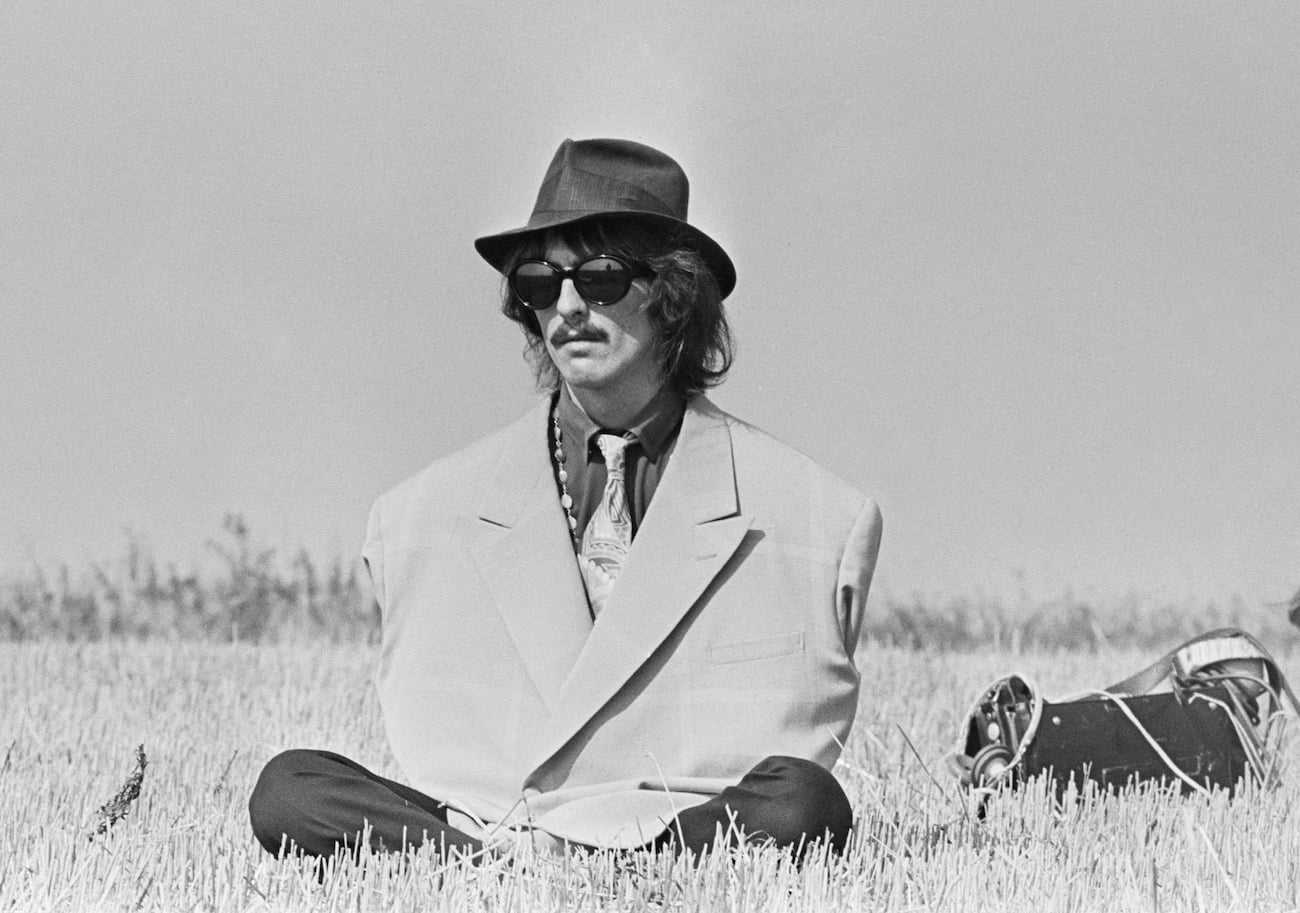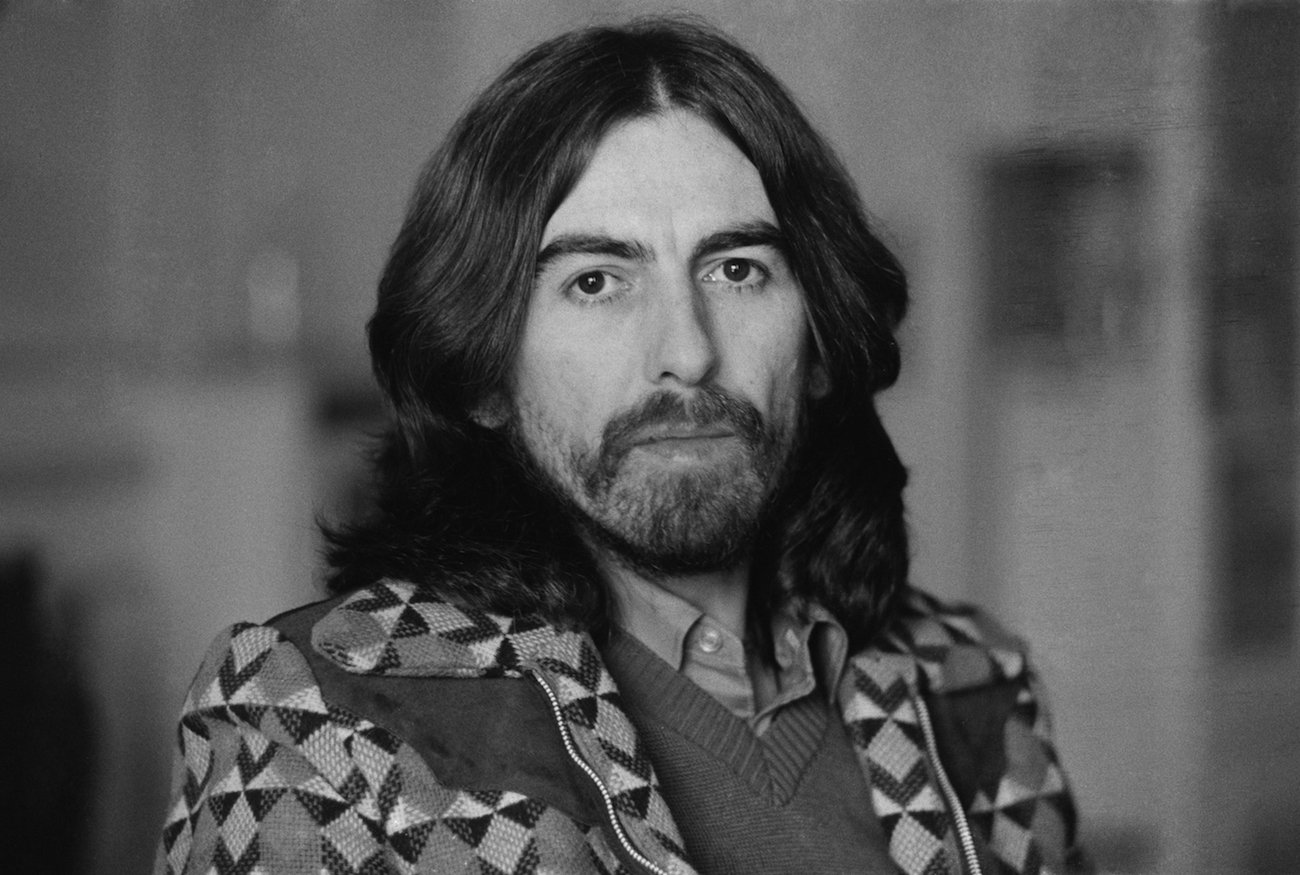
The One Record in the World George Harrison Would’ve Chosen to Listen to for the Rest of His Life
When George Harrison was in the womb, his mother, Louise, used to play Radio India. She hoped that the Eastern music would calm her rambunctious unborn child. Years later, George heard the funky sounds of sitars and other Indian instruments on the set of The Beatles’ Help! It all sounded familiar like he’d heard the music in a previous life.
George quickly fell in love with Indian music after that. He received private sitar lessons from one of the most famous sitarists, Ravi Shankar, and added Eastern music to The Beatles’ songs. If George had to pick one album to listen to forever, he would’ve chosen an Indian record.

When George Harrison first heard Indian music, he said it sounded familiar
George couldn’t stop hearing the sitar’s interesting sound after hearing it on the set of Help! So, he went out and bought one. Then, his friends told him to listen to Shankar’s music. Listening to the sitarist’s ragas for the first time changed George’s life forever.
In Here Comes The Sun: The Spiritual And Musical Journey Of George Harrison, Joshua M. Greene wrote, “Describing the moment years later, George said the music felt familiar, not intellectually but emotionally, as though calling him back to a place he already knew.”
Maybe George remembered the Indian music from when he was in the womb. Or, maybe George had heard the music in a previous incarnation.
George added the sitar to The Beatles’ “Norwegian Wood.” Finally, in 1965, George met Shankar. The Beatle impressed the sitarist with his humility, so he offered to teach George sitar.
George eventually realized he’d never become as good a sitarist as Shankar. He dropped the instrument and returned to his guitar. However, his lessons with his musical guru weren’t for nothing. He learned a valuable lesson: God is sound. George never lost his love for Indian music either.
The one record George could’ve listened to for the rest of his life
Out of all the records in the world, George chose an Indian album as the one record he’d have to listen to for the rest of his life.
During a 1976 interview, India Today asked, “Indian music became a part of the whole ‘love generation’ scene, do you think it has a more permanent role to play in rock music?”
George replied, “No! I haven’t done a single Indian track since Sarge. Pepper, and I suppose ‘Inner Light,’ which incidentally, was recorded in Bombay with Paul singing harmony – Ringo and John weren’t around! On my last US tour I took Ravi and Ali Akbar along, but audiences don’t seem interested!
“You can, I guess, use Indian instruments in music, but then you use such beautiful instruments in your own ‘nonsense music’ – the film songs – so why not in the West?
“Personally, I think Indian music is where it’s at. If I had to choose one record in the whole world, I’d select Bismillah Khan, and that’s it.”
The Beatle said he preferred Indian music to any other form of music
Eventually, the Eastern sounds became George’s favorite form of music. George even admitted that he listened to Indian music more than any other form.
According to Greene, music journalist Ray Coleman asked George about his love of Indian music. “I don’t fancy myself as the next Ravi Shankar,” George said, “but I still prefer Indian music to any other form of music. It has taken over 100 percent in my musical life. . . . Just learning the sitar has inspired me.”
Greene wrote, “He wanted to say more, to substantiate for the writer something that still eluded him, and he groped for the words. ‘You know how God is a, sort of, untouchable thing?’ George asked. ‘Well, that’s how it is with Indian music. It’s a very spiritual thing, so subtle and related to philosophy and life. It’s not easy to understand the music at first, but it’s beautiful when you get it.”
George continued to listen to Indian music for the rest of his life. It brought him closer to God.


